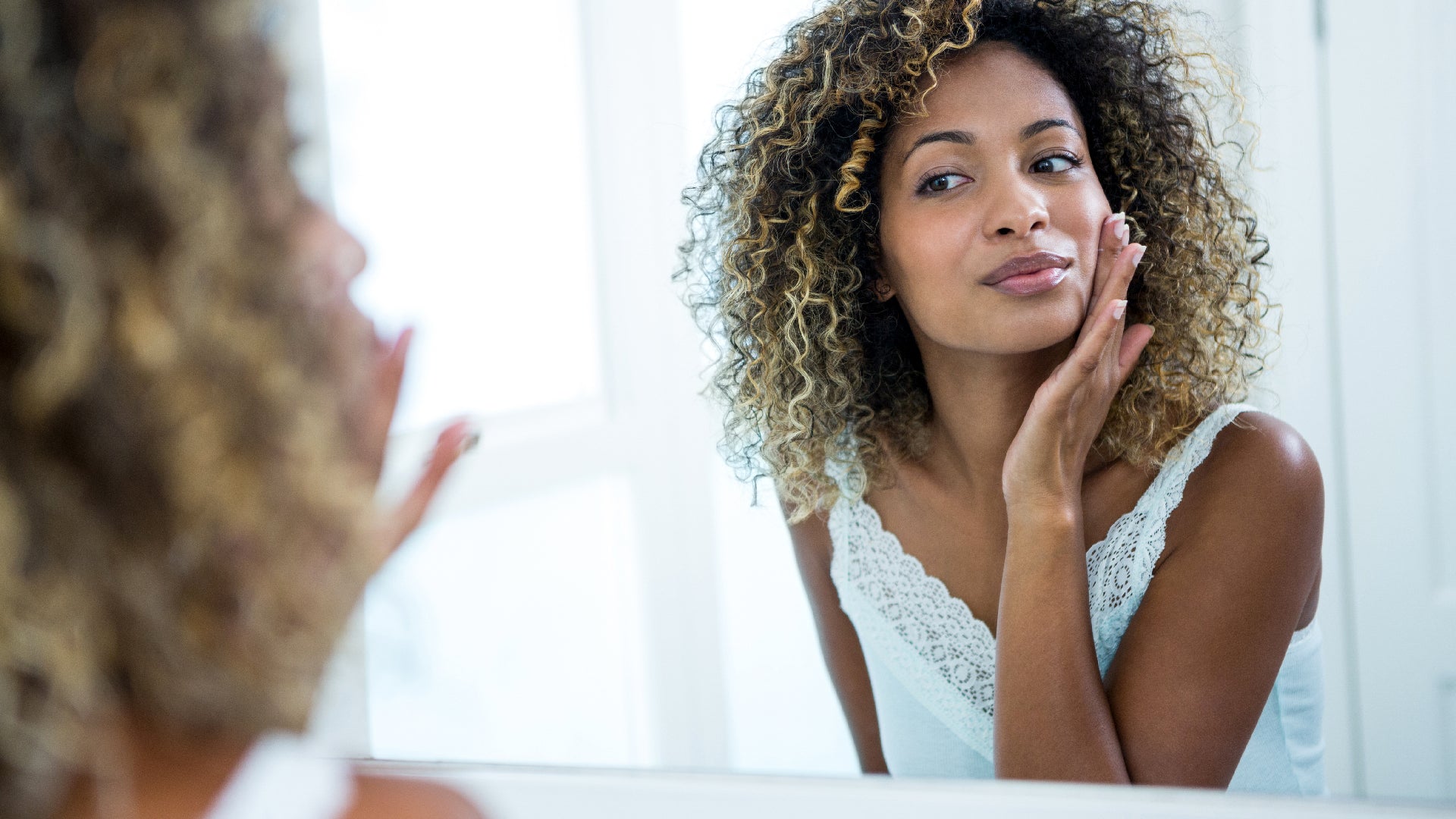
Is Skin Fasting A Legitimate Way To Get Healthier Skin?
Taking a break from your skincare routine: a good thing for your complexion or more harm than it's worth?
Skin fasting is a real thing right now. But could you give up your entire skincare routine or even just part of it for a week? Maybe even longer? More importantly, should you? Here, we take a deep dive into this challenging beauty trend to see if it lives up to the hype…
What Is Skin Fasting?
Just like it sounds, skin fasting is when you give up part or the whole of your skincare routine in order to allow your skin time to 'rest.' You might forego your moisturizer for a day or so, or you could stop using your entire routine for weeks at a time if that floats your boat. This all counts as skin fasting; it’s simply the extent to which you fast that’s in your hands.
‘OK, but what’s the point?’ we hear you ask. Well, the idea is that your skin can become reliant on skincare products and so, after a while, it kind of stops functioning properly. By taking products away, the theory is that your skin can get back to business on its own, detoxifying itself and fixing its own problems without relying on countless serums and moisturizers to bear the load for it.
Another thought process is that it’s way too tempting to pile on a whole army of skincare products which can be pretty grating on your skin, breaking down your barrier function and resulting in a whole host of unwanted issues like redness, irritation, dryness and breakouts. By hitting the reset button on a weighty routine, you shift your skin back to its original state, allowing your barrier function to get back to doing what it does naturally – protecting, moisturizing, balancing and hydrating your skin.
Sounds Fair. So, Does Skin Fasting Work?
This all depends on who you ask. Speak to the latest skin fasting influencer and they might tell you their skin has never looked better after a week of being free from skincare products. Ask another and they’ll tell you in no uncertain words that it was the worst thing they ever did for their skin.
Which side of the fence do we sit? Well, the truth is, there’s no evidence that shows skin ‘gets used to’ products and then stops functioning properly. Nor is there any proof that taking a break from your skincare routine truly benefits your skin. None whatsoever. Zilch. Nada. It's an interesting idea, for sure, but in terms of scientific proof? We're yet to see any.
We like to think we know a fair bit about how the skin works and correct us if we’re wrong but if you stop cleansing and/or exfoliating, how can your skin remove the daily build-up of dirt, oil, debris and makeup all by itself? Magic? Because that’s the only thing we can think of. Also, let’s think about moisturizing for a hot minute. You moisturize your skin to seal in hydration and balance oils, right? And this is especially important as you get older when sebum production slows down. Well, if you stop moisturizing, do you really think your skin is going to miraculously start producing its own natural oils? It won’t. Instead you’ll probably just end up with dry, itchy skin and more pronounced lines.
In fact, there are SO many better ways to look after your skin’s barrier function and care for your complexion than starving it of essential oils, hydration and antioxidants from your skincare routine. Here are five of the best…
5 (Much Better) Ways To Rejuvenate Your Skin’s Barrier Function
1. Pare Back Your Skincare Routine
Instead of fasting, think about giving your skin a little diet instead – especially if your arsenal of products has been getting out of hand recently. It’s tempting to slap on retinol, vitamin C and glycolic acid all over your skin day and night, but too many active ingredients is hell on your barrier function.
If this sounds familiar, streamline your routine to the essentials (cleanser, moisturizer and sunscreen), then add in a few targeted eye treatments and facial serums to work on any concerns you may have. This will do your skin much more good in the long run than applying 15 (or in fact, zero) products on the reg.
3. Patch Test Your Products
Whenever you add a new product into your routine, don’t dive in head first and expect your skin to be cool with that. This is especially important if said product contains potent, active ingredients that have been included to work on specific conditions like dark spots, wrinkles or acne.
Everyone’s skin is different, and while every bit of research goes into products to make them safe to use, who’s to say your skin won’t be irritated by a certain ingredient or formulation? The best way to avoid irritation is to patch test ALL new products before applying them for the first time.
We have everything you need to know about patch testing, right here.
3. Review Your Cleansing Game
Cleansing is extremely important for healthy, clear skin, but if you cleanse too often, too vigorously or with super strong ingredients, your skin will hate you for it. In fact, one of the worst things you can do for your barrier function is to strip away all of its natural oils with a harsh cleansing routine.
That being said, don’t ditch cleansing altogether. Just be kind to your skin by using lukewarm, never hot water and avoiding skin-drying chemicals like sodium laureth sulfate (SLS) and sodium lauryl ether sulfate (SLES). These surfactants are often used in cleansers because they’re great at cleaning your skin. The problem is, they’re a little too good and can end up leaving your skin's barrier dry and compromised. We use gentler, more skin-friendly surfactants like and disodium 2-sulfolaurate in our Vitamin C and Charcoal Face Washes. Just saying.
4. Help Out Your Skin’s NMF
Your skin’s NMF is its natural moisturizing factor, an important part of the barrier function that consists of a clever blend of amino acids, minerals, peptides and other ingredients to help keep your skin soft, supple, hydrated and healthy. As you age and subject yourself to the daily grinds of life, your NMF slowly breaks down which is often why your skin becomes drier, more flaky and itchy over time.
So, what can you do to help out your NMF? You ply it with hydrating and moisturizing ingredients thanks to a fabulous skincare routine. Most dermatologists agree that ceramides are some of the most important ingredients for strengthening and restoring your NMF, so keep your eyes peeled for ceramides on your skincare labels. And of course, ensure your moisturizers contain a blend of humectants like hyaluronic acid, glycerin and aloe to draw water into the skin, plus emollient or occlusives like jojoba oil, shea butter and colloidal oatmeal to seal it all in. Try our TruSkin Vitamin C Brightening Moisturizer if you want to nail all that... and then some.
5. Protect Your Skin 24/7
Finally, but just as, if not more importantly than anything else, you must protect your skin from that pesky sun. Studies show that UV radiation is responsible for 80 percent of the visible signs of skin aging and it can seriously damage the barrier function of your skin.
Protect your skin daily with a broad-spectrum SPF 30 + sunscreen and make sure you include plenty of antioxidants in both your skincare routine and your diet. Antioxidants are the bomb at quashing free radical damage caused by the sun and environmental pollution. They can’t and shouldn’t replace sunscreen, but they’re the ideal add-on. Topical vitamin C, for example, not only hits free radicals where they hurt, but can also boost the effectiveness of your sunscreen, so a C-enhanced serum is a great shout to add to your morning regime. Try our Vitamin C Facial Serum before moisturizing. Neither you, nor your skin’s barrier will regret it.
Now, what was that about skin fasting? No thanks.











